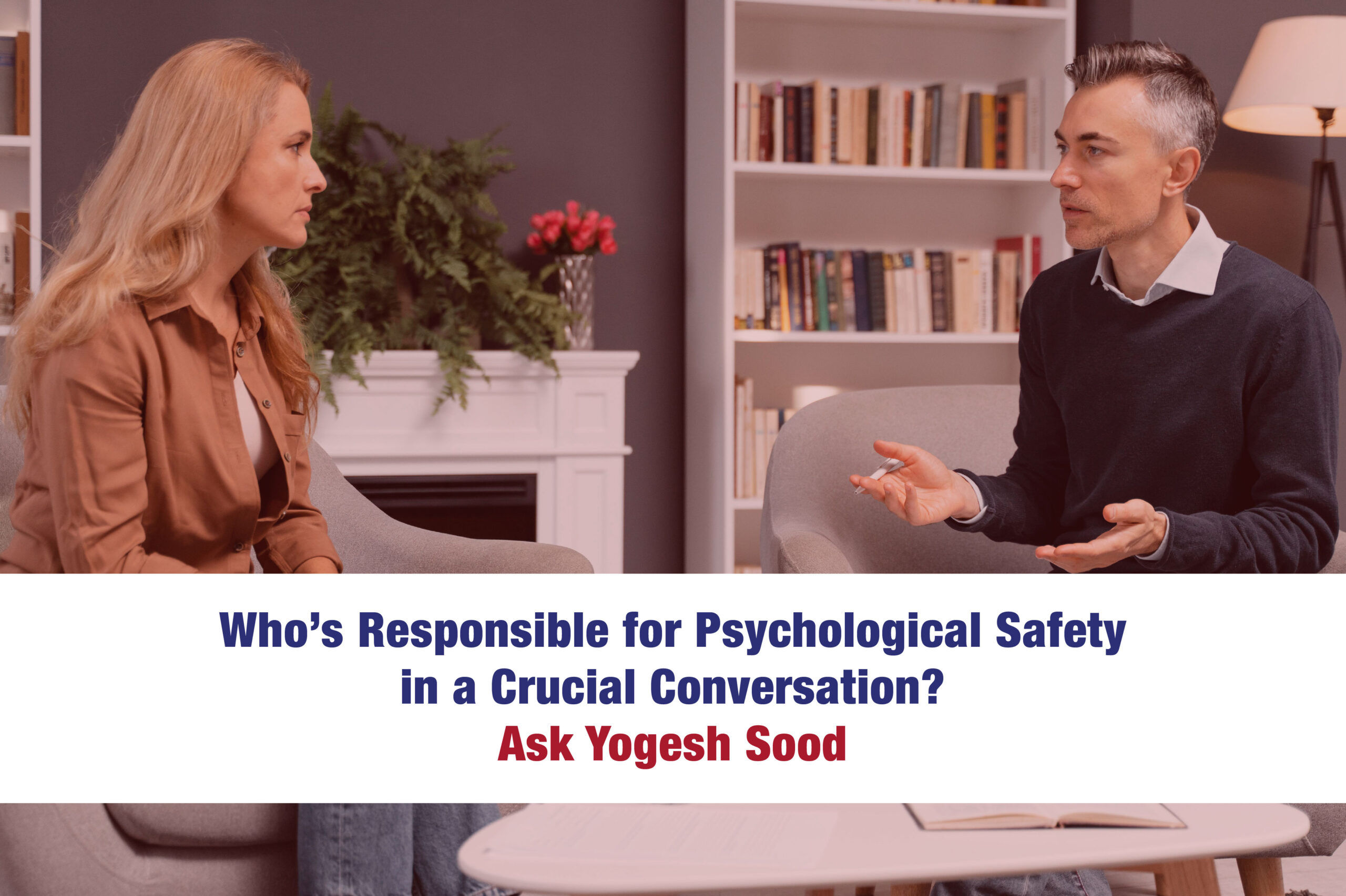Dear Yogesh,
I was reading the book Crucial Conversations for Mastering Dialogue, and I came across the fact about psychological safety, and a question struck my mind, “What should you do if you don’t feel safe during a conversation?” which got me thinking, what should you do if you feel psychologically unsafe?
Regards,
Raj
Dear Raj,
Let me first give you the answer and then explain further: You are responsible for your own safety!
Let me start by giving you an example. One time I had to give a presentation for a business deal to a fellow CEO. During the conversation, one striking moment was during a high-stake negotiation. I had gone through three times over one brief, and the response to all three was cold. By the fourth meeting, I was about to lose my temper.
Do you know why? Because I felt intimidated. I came to the conclusion that the other person was trying to manipulate the meeting in his favour. And, in a situation like this, anybody could feel like a victim. But in reality, that happened because I made myself the victim. I had unconsciously shifted responsibility for my interests to another person. But the truth was he couldn’t threaten me. He could only walk away from the deal.
There are majorly two outcomes that come when the stakes are high. People lead a life of victimhood and rescuing.
VICTIMHOOD
At times people feel it’s the other person’s responsibility to make them feel respected. Similarly, when you get a cold response or see people behaving in a certain way that you feel is rude, you might feel threatened. But the other person is not responsible to make you feel respected in the first place. The trick is to not look for validation from other people You do not need approval or respect. You need to carry that in yourself.
Whenever I feel like a victim, I look at myself for where I have given up responsibility and where I need to take it back.
RESCUING
The beginning of the assumption that others are responsible for our sense of psychological safety is when we begin to assume we are responsible for others’ sense of safety. When are not playing the victim role in our minds, we often engage in rescuing others.
In Crucial Conversations, we go to great lengths to teach people how one can help with making the other person feel safe during a conversation. However, at no time do we suggest you are responsible for making them feel safe. The difference between taking responsibility for being respectful and taking responsibility for whether someone feels respected makes the difference. One is doable. The other one, not so much.
As a result, we commit to a life of calculation and manipulation. The result is relationships of alienation rather than true connection.
I would recommend you to read the brand new chapter, chapter 10 of the third edition of Crucial Conversations. It addresses in depth what it takes to deal with safety problems.
Regards,
Yogesh Sood
The above is an adaptation of a blog written by Joseph Grenny on MAY 4, 2022.

